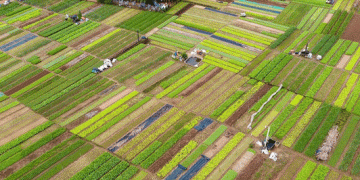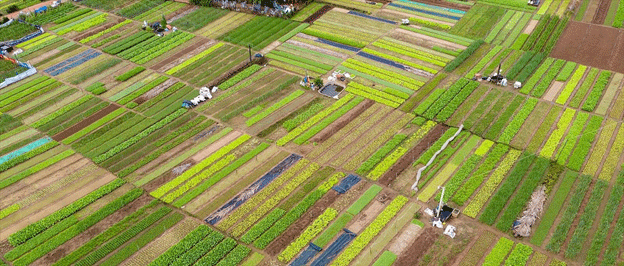Trà Quế Village, nestled in the Quảng Nam province of Vietnam, has garnered international recognition by being named the “Best Tourism Village” for 2024 by the United Nations World Tourism Organization (UN Tourism). Situated just 3 kilometers from the historic town of Hội An, this small village has been able to blend its rich agricultural heritage with a sustainable tourism model, winning the admiration of global stakeholders.
The village, which has been cultivating vegetables organically since the 16th century, is known for its vibrant ecosystem and unique approach to farming. Trà Quế’s soil, enriched by the nearby Cổ Cò River and Trà Quế Lagoon, provides an ideal environment for growing aromatic herbs and vegetables, many of which are integral to Vietnamese cuisine. Currently, 202 households in Trà Quế are engaged in farming, with a workforce of 326 direct laborers working across 18 hectares of land. The farmers primarily grow vegetables like herbs, basil, and coriander using traditional organic methods, promoting soil health and biodiversity.
The recognition by UN Tourism comes after a rigorous evaluation of over 260 nominations from 60 countries. Trà Quế stood out not only for its natural resources but also for its commitment to preserving local culture and implementing sustainable practices in both agriculture and tourism. The village’s agricultural methods, which have long been rooted in sustainability, now provide a stable income for local farmers and serve as a model for integrating agriculture with eco-tourism.
Trà Quế’s agricultural practices are complemented by its rich cultural and historical sites, including ancient Cham wells, the Thổ Thần Temple, and the Ngũ Hành Temple. These landmarks, alongside the annual Cầu Bông Festival and traditional culinary practices, are part of a vibrant cultural landscape that is being carefully preserved. The village’s farmers also engage visitors through interactive tours, allowing tourists to participate in the cultivation and harvesting of vegetables, providing a unique hands-on experience that highlights the importance of sustainable farming.
In 2022, the Ministry of Culture, Sports, and Tourism of Vietnam recognized Trà Quế’s farming techniques as a national intangible cultural heritage, further solidifying its importance in both the agricultural and cultural sectors. The village’s commitment to developing sustainable agriculture is matched by its dedication to preserving its local traditions, making it an exemplary model for other rural communities seeking to balance development with heritage preservation.
The award from UN Tourism acknowledges not only the village’s efforts in sustainable farming but also its strategic approach to tourism. By integrating local agriculture into the tourism experience, Trà Quế has created an economic model that benefits both the farming community and the tourism sector. Visitors to the village can engage in hands-on activities like planting, harvesting, and cooking traditional Vietnamese dishes using the fresh produce grown locally. This immersive experience is aligned with the global shift towards eco-tourism, where sustainability is at the forefront of the travel experience.
Trà Quế Village’s success in winning the “Best Tourism Village” award is a testament to the potential of sustainable agriculture and tourism working in harmony. By preserving its agricultural practices and cultural heritage while adapting to modern tourism trends, the village provides a unique model of rural development that offers economic benefits, cultural enrichment, and environmental sustainability. As other villages look to adopt similar approaches, Trà Quế stands as a shining example of how traditional farming can thrive in the modern world, benefiting both locals and visitors alike.































